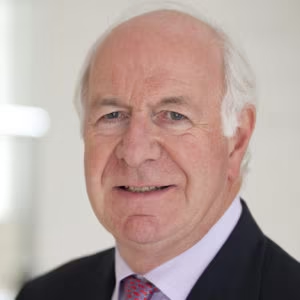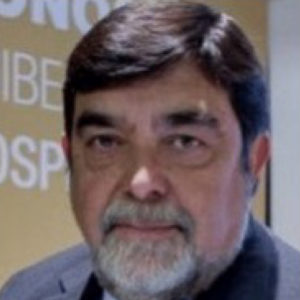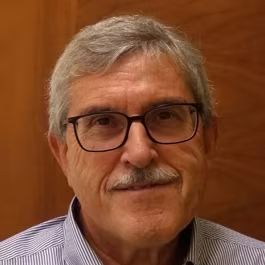touchCONGRESS Continuing the conversation in paediatric endocrinology – how do the latest advances in understanding biology translate to improved patient care?
Stay up to date with the latest developments in the biology, diagnosis and treatment of paediatric patients with growth hormone disorders with our touchCONGRESS Webinar and Expert Interviews from the European Society for Paediatric Endocrinology (ESPE) Congress in Vienna, Austria, 19–21 September 2019.
Part 1: Watch internationally renowned expert Prof. Martin Savage review key data from ESPE 2019
Part 2: Choose from leading experts who discuss what the data finding mean for global and reginal practice
Introduction
Improving patient care for severe primary IGF-1 deficiency
Improving patient care for growth hormone deficiency
Improving patient care for all paediatric growth disorders
Overview
Watch Prof. Martin Savage review the most important emerging data presented at the ESPE 2019 Congress and discusses their potential impact on improving patient care, including:
- What are the latest advances in understanding the biology, diagnosis and treatment of severe primary IGF-1 deficiency?
- What are the latest advances in understanding the biology, diagnosis and treatment of growth hormone deficiency?
- What are the latest advances in understanding the biology, diagnosis and treatment of all paediatric growth disorders?
Prof. Martin Savage has extensive clinical and research experience, with his main research interests being within the field of growth disorders, particularly those involving defects in the growth hormone IGF-1 axis. Much of his research has been focused on looking at the genotype-phenotype relationship of such defects.
Prof. Savage held the role of General Secretary of the European Society for Paediatric Endocrinology from 1997 to 2004. He has published over 570 research articles, reviews and book chapters and has lectured internationally at more than 50 different institutions. Prof. Savage was awarded the ESPE Andrea Prader prize in 2007 for his contributions to Paediatric Endocrinology.
Prof. Martin Savage discloses: Consultancy agreements with Genexine/Handok, Global, Merck KGaA Darmstadt, Novartis, OPKO, Sandoz UK and Springer IME. Speaker honoraria from Novo Nordisk and Pfizer.
Prof. Martin Savage, Professor Emeritus at the William Harvey Research Institute, Barts and the London School of Medicine and Dentistry, Queen Mary University, London, UK, discusses what the latest data presented at ESPE 2019 might mean in clinical practice for the diagnosis, treatment and management of children with growth disorders.
Prof. Jesús Argente, Professor and Director of the Department of Paediatrics at the Autonomous University of Madrid and Chairman of the Department of Paediatrics and Endocrinology at Child Jesus University Children’s Hospital, Madrid, Spain, discusses what the latest data presented at ESPE 2019 might mean in clinical practice for the diagnosis, treatment and management of children with growth disorders.
Dr Sandro Loche, Director of the SSD Pediatric Endocrinology and Neonatal Screening Centre, Microcitemico Pediatric Hospital, Cagliari, Italy, discusses what the latest data presented at ESPE 2019 might mean in clinical practice for the diagnosis, treatment and management of children with growth disorders.
Dr Marco Cappa, Head of the Endocrinology Unit, Bambino Gesù Children’s Hospital, Rome, Italy, discusses what the latest data presented at ESPE 2019 might mean in clinical practice for the diagnosis, treatment and management of children with growth disorders.
Prof. David Martin, Paediatric Endocrinologist, Haematologist, Oncologist and Diabetologist, and Prof. of Paediatrics at Tübingen University, Germany, discusses what the latest data presented at ESPE 2019 might mean in clinical practice for the diagnosis, treatment and management of children with growth disorders.
Please Select A Video:
Overview & Learning Objectives
Overview
Stay up to date with the latest developments in the biology, diagnosis and treatment of paediatric patients with growth hormone disorders with our touchCONGRESS Webinar and Expert Interviews from the European Society for Paediatric Endocrinology (ESPE) Congress in Vienna, Austria, 19–21 September 2019.
The information in this activity is intended for endocrinologists and other healthcare professionals involved in the treatment of paediatric patients with growth hormone disorders. It will be particularly beneficial for those treating patients with severe primary IGF-1 deficiency and/or growth hormone deficiency.
Learning Objectives
After watching this touchCONGRESS, you should be able to:
- Recall the latest advances in understanding the biology of paediatric growth disorders
- Interpret the latest data for the diagnosis and management of paediatric growth disorders and their impact on daily clinical practice
- Recognize the importance of personalized medicine on clinical outcomes

Register to touchENDOCRINOLOGY for FREE
- Peer-reviewed journals and expert opinions
- Interactive CME and e-learning modules
- Video conference highlights




























